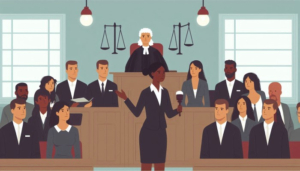
Are you passionate about motorcycles? Learn how Motorcycle Accident Awareness Campaigns are crucial in promoting safety and reducing accidents on the road. Discover insightful tips and information to keep riders safe.
In an age where motorcycles offer freedom and thrill on the open road, safety remains paramount. Motorcycle Accident Awareness Campaigns aim to educate riders and motorists alike, promoting safety measures to prevent accidents and minimize injuries. This comprehensive guide delves into the importance of these campaigns and offers valuable insights into fostering a safer riding environment.
Understanding the Need for Awareness
Motorcycle Accident Awareness Campaigns play a pivotal role in addressing the unique challenges faced by riders. From visibility issues to road hazards, riders encounter various risks that necessitate proactive measures. By raising awareness about these risks and advocating for safety precautions, these campaigns strive to reduce accidents and save lives.
The Impact of Accidents
Motorcycle accidents can have devastating consequences, affecting riders, passengers, and their families. From minor injuries to fatalities, the aftermath of an accident can be profound. Motorcycle Accident Awareness Campaigns shed light on the real-life implications of accidents, emphasizing the importance of preventive measures.
Spreading the Message
Collaborative Efforts
Successful Motorcycle Accident Awareness Campaigns often involve collaboration between government agencies, non-profit organizations, and community stakeholders. By pooling resources and expertise, these initiatives can reach a wider audience and enact meaningful change.
Utilizing Technology
In today’s digital age, technology offers innovative solutions for promoting safety. From interactive websites to social media campaigns, leveraging technology can enhance the reach and effectiveness of awareness efforts.
Motorcycle Accident Awareness Campaigns: Key Strategies
Education and Training
Providing comprehensive education and training programs is essential for empowering riders with the knowledge and skills to navigate safely. From beginner riding courses to advanced skill development, education initiatives can instill confidence and promote responsible riding habits.
Visibility Enhancement
Improving rider visibility is crucial for reducing accidents, especially in low-light conditions or inclement weather. Motorcycle Accident Awareness Campaigns advocate for the use of reflective gear, bright colors, and proper lighting to enhance visibility and alert other motorists.
Infrastructure Improvements
Investing in infrastructure improvements can create a safer environment for riders and motorists alike. From designated motorcycle lanes to road surface enhancements, these initiatives aim to reduce hazards and minimize the risk of accidents.
Addressing Common Concerns
Motorcycle Helmet Laws
Q: Are motorcycle helmets mandatory? A: In many jurisdictions, wearing a motorcycle helmet is required by law. Helmets significantly reduce the risk of head injuries in accidents and are a fundamental safety measure for riders.
Rider Training Programs
Q: Are there specialized training programs for motorcycle riders? A: Yes, various organizations offer rider training programs designed to enhance skills and promote safe riding practices. These programs cover topics such as maneuvering, hazard awareness, and emergency braking.
Motorist Awareness
Q: How can motorists contribute to motorcycle safety? A: Motorists can play a crucial role in motorcycle safety by practicing vigilance, avoiding distractions, and giving riders ample space on the road. Understanding the challenges faced by motorcyclists and respecting their presence can help prevent accidents.
Advocacy and Legislation
Q: What role does advocacy play in motorcycle safety? A: Advocacy efforts are instrumental in promoting legislative changes and initiatives aimed at improving motorcycle safety. By lobbying for stricter enforcement of traffic laws and infrastructure improvements, advocates can effect positive change.
Community Engagement
Q: How can communities support Motorcycle Accident Awareness Campaigns? A: Communities can support awareness campaigns by organizing events, hosting workshops, and disseminating educational materials. By fostering a culture of safety and solidarity, communities can contribute to safer roads for everyone.
Enforcement and Accountability
Q: How are traffic laws enforced concerning motorcycles? A: Law enforcement agencies play a vital role in enforcing traffic laws and ensuring compliance with safety regulations. By conducting patrols, issuing citations, and raising awareness, authorities help deter reckless behavior and promote adherence to safety measures.
Conclusion
Motorcycle Accident Awareness Campaigns are instrumental in promoting safety, raising awareness, and reducing accidents on the road. By fostering collaboration, embracing innovation, and addressing common concerns, these campaigns strive to create a safer environment for riders and motorists alike.







